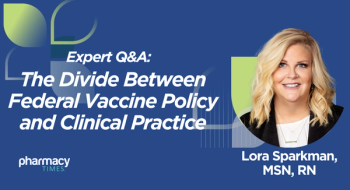
Medicare Places Few Restrictions on Opioid Prescriptions
One-third of Medicare opioid prescriptions were not subject to restrictions.
As the opioid epidemic continues to claim lives, more states and healthcare stakeholders are implementing prescribing regulations with the goal of mitigating addiction to prescription painkillers.
Despite existing guidelines, a new study published by the Annals of Internal Medicine suggests that Medicare plans place limited restrictions on opioids. These findings highlight a possibility for Medicare formularies to regulate opioid prescribing and drive down the epidemic.
In 2016, the CDC issued new guidance about prescribing opioids; however, little is known about prescribing under Medicare, which is typically a standard for other insurers, according to the authors.
In the study, the authors analyzed Medicare Part D and Advantage formulary files from 2006, 2011, and 2015. They included coverage for opioids during this time, excluding methadone.
In 2015, the investigators found that one-third of opioids were not subject to formulary restrictions, such as prior authorization or step therapy, according to the study. Formularies may implement such restrictions to reduce unnecessary therapy and associated costs.
While the number of prescriptions without restriction have been reduced by one-third since 2006, the authors said there is still a large number without limitations.
Despite increased safeguards that limit the number of pills prescribed over time, only 13% of prescriptions in 2015 met the dosage restrictions recommended by the CDC, according to the study.
Notably, there was also an increased number of opioids covered by Medicare plans between 2006 and 2015.
Implementing prescribing restrictions has been thought to be an effective way to control the opioid epidemic. A previous study found a 15% reduction in opioid prescribing when a commercial insurer implemented prior authorization, quantity limits, and provider-patient agreements, according to the authors.
Several states have also passed legislation that restricts prescriptions as a way to curb the opioid epidemic.
New Jersey has taken several steps to reduce the burden of opioids.
Placing similar restrictions on opioid prescribing for Medicare-insured patients may be an effective way to expose fewer individuals to potentially addicting treatments and fight the opioid epidemic.
“People are looking for any way to control the increase in opioid-use disorder. This is one strategy,” said first author Elizabeth Samuels, MD, MPH.
Newsletter
Stay informed on drug updates, treatment guidelines, and pharmacy practice trends—subscribe to Pharmacy Times for weekly clinical insights.








































